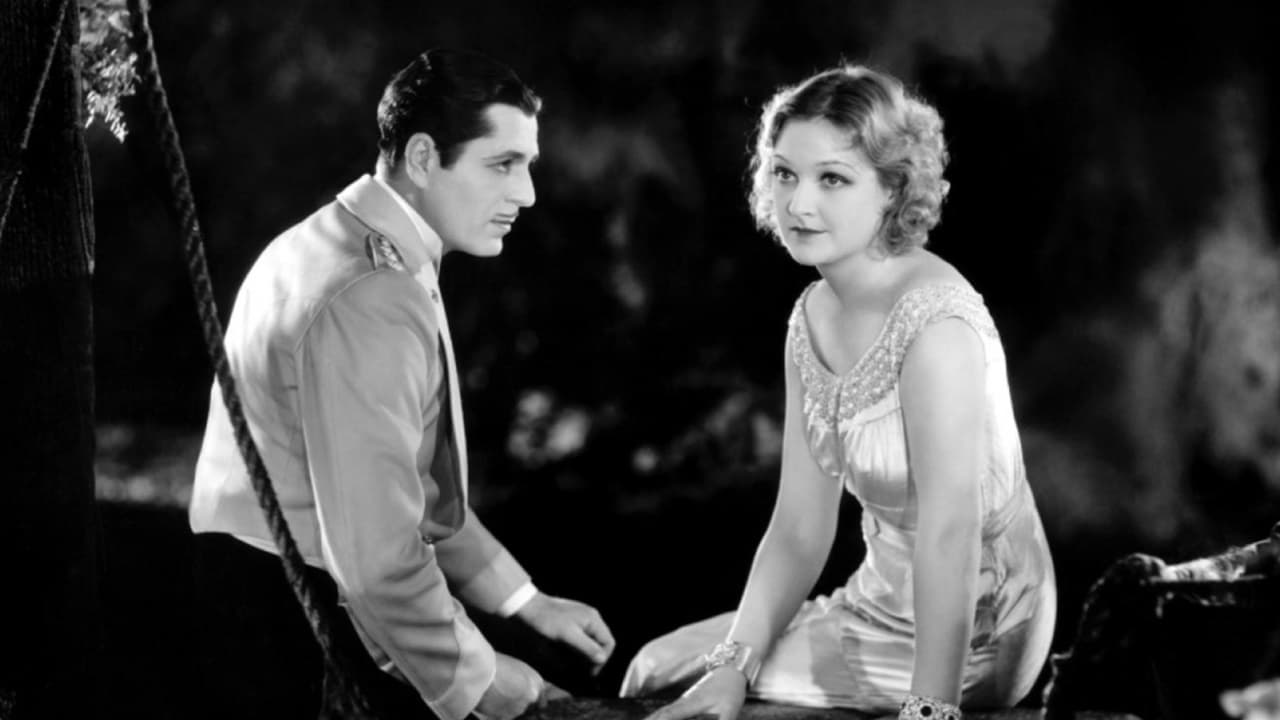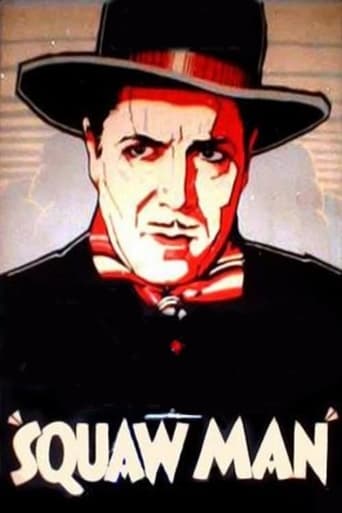

This story is a bit hard to swallow. A British noble leaves England to save the family name - his cousin, actually - who has embezzled and bankrupted the family fortune, leaving the woman he loves (who is married to the embezzler). He then turns up as a rancher in Texas (honest, I'm not making this up), takes up with an Indian girl who bears him a son. Seven years later, the embezzler dies but confesses, freeing the benighted couple to marry, she in England and he in Texas. Think you can go with it? Well, I couldn't, but the principals are so in earnest and the mood so solemn that you give it a break - a rating of six, to be exact.I am into acting performances and this picture has many good ones; Warner Baxter (extremely in earnest), Eleanor Boardman and Roland Young (somewhat in earnest) and Lupe Velez, who really doesn't fit and, to my mind, nearly sinks the picture with a catatonic performance. She got better in the "Mexican Spitfire" series in the 40's. As I say, the preposterous plot is played with a straight face, so I gave this head-scratcher the benefit of the doubt.
... View MoreConsidering that this film was made in 1931, it sure looks more like a silent film with words rather than a more modern looking film. In 1931 we had films like "Frankenstein", "Cimarron", "Mata Hari", "City Lights", "Dracula", "M", "Public Enemy", "Dr. Jekyl and Mr. Hyde", and "Monkey Business". All of these films had better acting, camera work and better use of sound, and they all had a more modern script. "The Squaw Man" was the third filming of the play, all of them by Cecil B. DeMille. The play was written in 1905 and starred future famous silent film cowboy William S. Hart. It ran for nearly a year and was revived several times, then spawned a novel. But all 3 versions held steady to the Victorian plot, and even by 1931 it seems dated.
... View MoreThe Squaw Man (1931) ** 1/2 (out of 4) This here was Cecil B. DeMille's third attempt at telling Edwin Milton Royle's play. This time out it's Warner Baxter who plays Jim Carston, a British man who is ran out of his country so he heads to the United States and out West. Once there he crosses a rival landowner but things take a turn for the worse when he falls in love with an Indian woman (Lupe Velez), which is a big no-no. This version from DeMille offers up a terrific cast and I think the racial issues are a lot more out front here but I really can't say that this was any sort of improvement over the 1914 version, which I've seen. All but the last reel is lost from the 1918 version so it's impossible to compare all three but this third version features quite a few problems. I think the film's biggest problem is the pacing because at times it moves along at a very slow pace. This includes the early stuff in Britain, which could have been completely left out and I think it would have helped. I also thought some of the stuff in the West dragged during spots but there's no question that the film is still worth viewing for the performances alone. Baxter was extremely good and believable in his part and there's certainly no doubt that he fit the tough guy role just fine. Charles Bickford is excellent as always and we get nice support from Roland Young, Paul Cavanagh and a young Dickie Moore. Velez easily steals the show as she's terrific in each scene she's in. Her beauty is on full display and while I'm sure some might be offended by the way the Indian is played, I thought the performance itself was very good. DeMille delivers a decent picture but at the same time one can't help but wish he had left this alone and attempted something else.
... View MoreAs all film buffs know Cecil B. DeMille's first version of The Squaw Man was the very first film done in what we now call Hollywood. He did a second silent version and for his third film on his MGM hiatus from Paramount he did it once again.Third time was not the charm. Although the actors, especially Warner Baxter as the disgraced English Earl who goes to the American west and meets, weds, and beds an Indian maiden, Lupe Velez are competent and sincere the film is terribly dated. Depression audiences simply were not interested in a Victorian morality tale with a dose of the British stiff upper lip.It all sounds so quaint and ridiculous. Baxter is accused of embezzlement and he knows who the culprit is, but won't inform because he doesn't want to disgrace the other guy's family. So with admirable rectitude he heads west and make a new life in America.He also manages to make an enemy of Charles Bickford who was another rancher who covets his land. But Baxter finds love with Lupe, as did most of Hollywood in real life, and he has a son who will in fact inherit his title.Cecil B. DeMille was a child of his time. Melodramas like The Squaw Man was the stuff that the legitimate theater did when he grew up and learned his trade from David Belasco. But audiences weren't buying it in 1931, people had real issues about where the next meal was coming from and could they find work. A story about some Victorian honor code just wasn't marketable.It's a sincere film though and it might be worth a look to judge what public tastes were at the turn of the last century and before the Roaring Twenties.
... View More